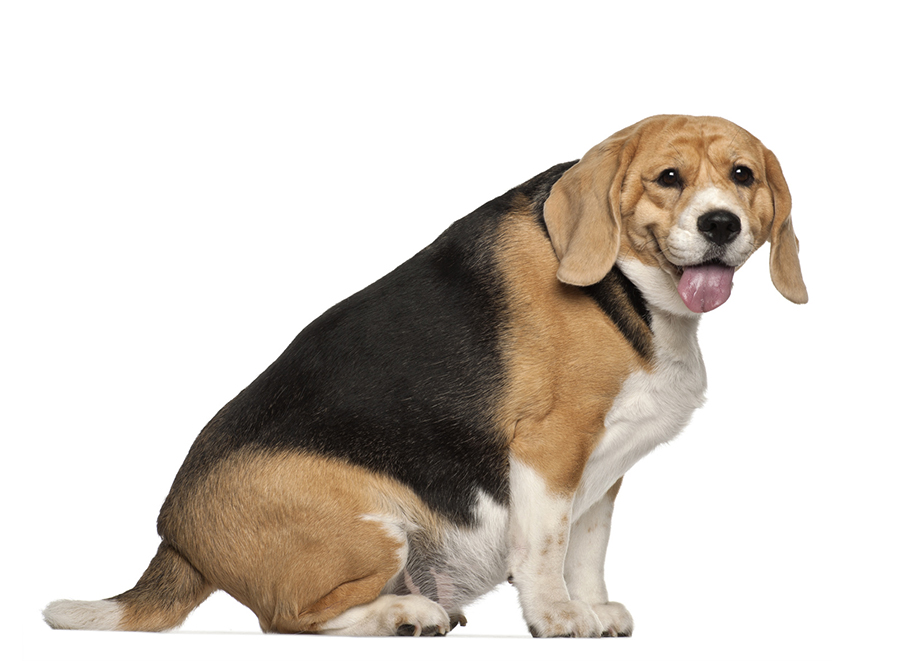Obesity in Dogs: Prevention and Management
Obesity is the most common nutritional disorder seen in dogs. Recent numbers suggest up to one in four dogs and one in six cats are suffering from this potentially harmful condition. There are three main causes of obesity in our pets: too much food, low activity levels and genetics. Occasionally medical problems such as hypothyroidism can contribute to obesity, in which case your pet should be seen by a veterinarian who can then complete tests to rule out these problems.
Pets that are overweight are much more likely to suffer from heart disease, respiratory problems, skin problems, infections, diabetes mellitus, high blood pressure and reproductive disorders than those with a normal body weight. Due to the effects on the cardiovascular system, obese animals have an increased risk for general anaesthesia. The increased body weight also puts more pressure on the joints that often leads to joint problems including arthritis.
- Ensure to measure the correct amount of food for your pet; don’t just fill up the bowl.
- Avoid giving snacks or treats. When your pet begs, respond with play or exercise instead of with food.
- Feed all meals and treats only from your pets bowl.
- To reduce your pet’s hunger and to help stop begging, feed your pet their daily food requirement divided into smaller more frequent meals.
- Don’t have your pet with you during your family’s meal times. This can help reduce begging, and helps you to resist giving your pet a treat.
- Always ensure there is plenty of clean fresh water for your pet to drink
- An exercise program is important. Try to slowly increase your pet’s exercise to 30-50 minutes daily.
Please contact one of our Hospitals and we can provide you with advice on nutritional requirements for your pet and assist you in setting up an exercise regime that both you and your pet can enjoy. Please don’t hesitate to contact us for more information.




